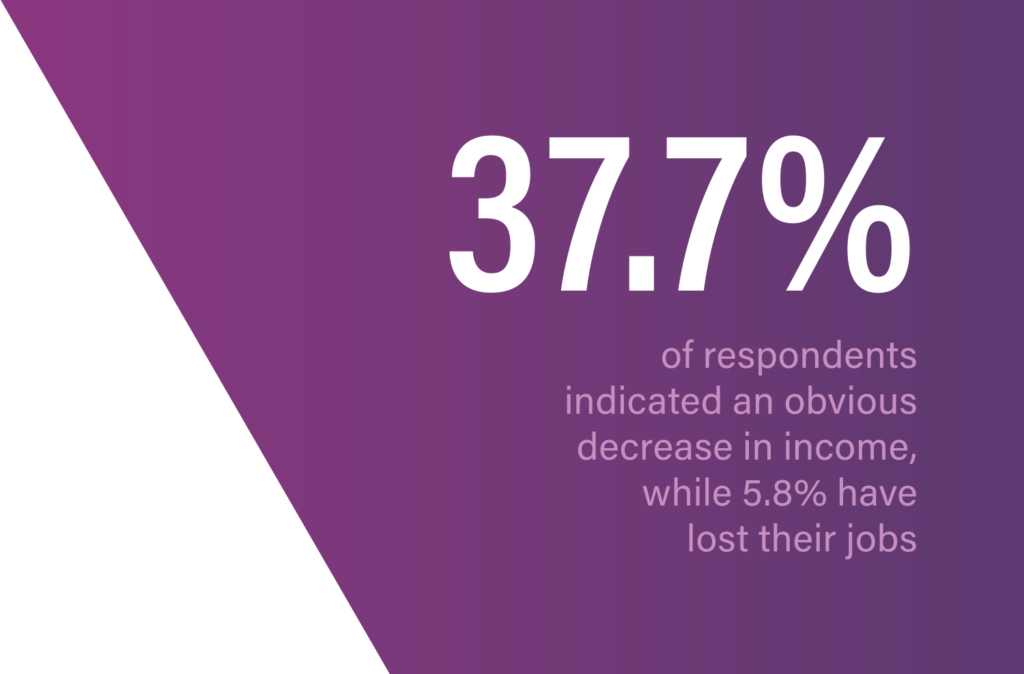
Investor sentiment remains negative despite COVID-19 recovery
While the COVID-19 pandemic curve has flattened out in China, the global business environment stands out in stark contrast. To examine investor sentiment and expectations of China’s capital market, the Cheung Kong Graduate School of Business (CKGSB) carried out research, led by Dr Liu Jing. This article outlines some of the main findings.
The Cheung Kong Investor Sentiment Survey (CKISS) examines investor sentiment and expectations of China’s capital market, based on a large sample from 13 major Chinese cities. In the latest CKISS released on 18th May 2020, Dr Liu Jing finds that: “investors’ concerns are justified, as the current COVID-19 pandemic has had a tremendous impact on the economy, greatly surpassing that of SARS and the 2008 financial crisis. It is expected that small and medium-sized enterprises (SMEs) may face a cash-flow crisis and be driven towards further bankruptcies. As the impact of the pandemic increases, the Chinese Government will have to intensify demand-side stimulus plans, to protect SMEs from bankruptcy.”
Stock and housing prices expectations drop
Survey respondents display a negative attitude towards A-share prices, dragging the expected rate of return into negative values for the first time. The expected rate of return in the current period is minus 1%, a decrease of 2.1% year-on-year (y-o-y). Respondents continue to be bearish towards Hong Kong stocks, with expected return rates dropping to minus 5.8%.
Respondents’ expectations on housing prices are also significantly lower. The expected return dropped to 1.6%, a decrease of 1%, and the expected probability of a housing price crash is 25%, an increase of 6.2% compared to that of the previous period.
Although respondents are not optimistic about the recent stock market trends, investors continue to show interest, albeit less than before, in stocks. There are several reasons for this. First, China is the first country to successfully curb and control the outbreak and restart economic activities. Second, the overall valuation of A-shares has hit a 20-year low, attracting investors to seize this opportunity. Third, the deleveraging in 2018 and 2019 helped privately listed companies clear most of their financial leverage risks. And lastly, Chinese investors have changed their pessimism over the China-United States (US) trade frictions into a relatively optimistic outlook, holding the view that bilateral trade will not be significantly affected in the long run.
Non-essential social activities consumption low
Shopping in a mall and dining out are respondents’ most preferred activities, selected by 49% and 43% respectively, followed by travelling by plane or train (30%) or on the subway or bus (25%). These activities are related to the basic necessities of life. However, consumption intention remains weak for non-essential social activities such as staying at a hotel, extra-curricular activities, housekeeping services and beauty care. The results demonstrate the essential role that people’s psychology plays in the demand side of the economy, and that effective control of the pandemic is of paramount significance to easing people’s worries and fears.
The pandemic has had a notable negative impact on consumers’ lives. As a result, 37.7% of respondents indicated an obvious decrease in income, while 5.8% have lost their jobs. Only 4.8% of respondents do not believe that the pandemic has had a substantial effect on their daily life.

COVID-19 economic impact surpasses SARS, 2009 financial crisis
The SARS outbreak was limited to China and its neighbouring countries and regions, on a relatively small scale and for a relatively short time, affecting only 8,422 people. Also, unlike the economic structural problems faced during the Great Depression and the 2009 financial crisis, the COVID-19 impact is more like that of a natural disaster. The only effective way to control the infection before a vaccine or cure is developed is to increase testing, and ensure strict quarantine measures and lockdowns are implemented, all of which place heavy burdens on the economy, in particular the service sector.
In the first quarter (Q1) of 2020, China’s GDP experienced a year-on-year decline of 6.8%. Assuming that the impact of COVID-19 in China commenced after January, economic growth in February and March actually declined by 13.2%. In the US and France, Q1 GDP decreased by 4.95% and 5.2% year-on-year, respectively. If we assume that the two countries were not impacted by COVID-19 in January and February, their economies declined in March by 19.7% and 18.6% respectively.
SMEs under severe pressure
The service sector has been hit hardest by the pandemic, essentially coming to a standstill. This places severe pressure on SMEs. According to China’s 2018 national economic census, the employment rate of SMEs in the service sector was around 70%, surpassing 90% in accommodation and catering, resident and repair services, as well as culture, sport and recreation sectors. These sectors are also those hardest hit by COVID-19. Although the surveyed urban unemployment rate reported by the National Bureau of Statistics of China is not high—at only 5.9%—the reported number of migrant workers dropped from 180 million to 120 million. At the same time, the unemployment rate in the US, at less than 4% before the pandemic, had skyrocketed to 14.7% by the end of April.
Unprecedented stimulus plans
According to the International Monetary Fund (IMF), the financial stimulus offered by G20 countries accounted for 2.3% of their total GDP (compared to 0.5% during the 2009 financial crisis). More specifically, stimulus funds—excluding loan guarantees for enterprises—accounted for up to 10% of GDP in the US, Japan, and Germany. If loan guarantees for enterprises is included, then the packages account for 36% of GDP in Germany, 13.5% in the United States and 19% in Japan.
In comparison, China’s stimulus package accounts for only 2% of its GDP. China’s cautiousness may be a result of lessons learned from its 2009 stimulus package, which led to a heavy deleveraging burden for many years, or may also be attributed to the relatively high household savings rate. As the impact of the pandemic continues, the Chinese Government will have no choice but to intensify demand-side stimulus strategies to prevent a large number of SMEs from going bankrupt.
Investors hold on to gold, optimistic on A-shares
Q1 of 2020 has brought global investors a once-in-a-century challenge, with uncertainties that will only increase over the next decade. The results of this survey suggest that investors should increase their gold holdings to mitigate or avoid potential risks. Furthermore, A-shares and the Hong Kong stock market have a good price-performance ratio, and may perform better if the government enhances its stimulus plan. In particular, technology-driven sectors—such as information technology, internet and cloud computing—are promising, and have indirectly proved their robustness during the pandemic.
Note: The views in this article are not necessarily those of the European Chamber. Any content provided here is intended for informational purposes only. Please speak to a professional financial advisor before making any investments.
About the Cheung Kong Investor Sentiment Survey (CKISS)
The Cheung Kong Investor Sentiment Survey (CKISS) is a survey on investor sentiment and expectations in the capital market, co-sponsored by Cheung Kong Graduate School of Business’ (CKGSB) Center for Investment Research and the Business Scholars Program.
Established in Beijing in November 2002, CKGSB is China’s first faculty-governed, non-profit, independent business school. More than half of CKGSB’s 13,000+ alumni are at CEO or chair level and, collectively, lead one-fifth of China’s 100 most valuable brands. In 2005, CKGSB pioneered integrating humanities into its curricula. EMBA students—over 80 per cent of whom are at vice president level or higher—are also required to complete six days of community work. In 2014, CKGSB was the first Chinese business school to develop a philanthropy programme. The school offers the following courses: MBA, Finance MBA, Executive MBA, Business Scholars Programme (DBA); and Executive Education programmes.
Dr Liu Jing is professor of Accounting and Finance, associate dean of CKGSB and director of its Center for Investment Research.


Recent Comments